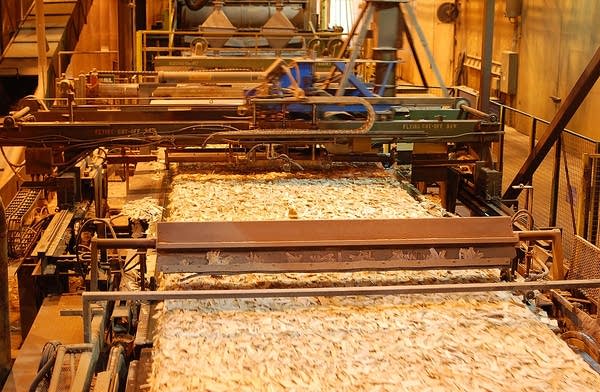North Carolina company drops plans for northeastern Minnesota wood mill

Loose wafers and strands of wood are formed into sheets on a production line of oriented strand board plant, the Huber mill's proposed product.
Tom Robertson | MPR file photo
Go Deeper.
Create an account or log in to save stories.
Like this?
Thanks for liking this story! We have added it to a list of your favorite stories.


